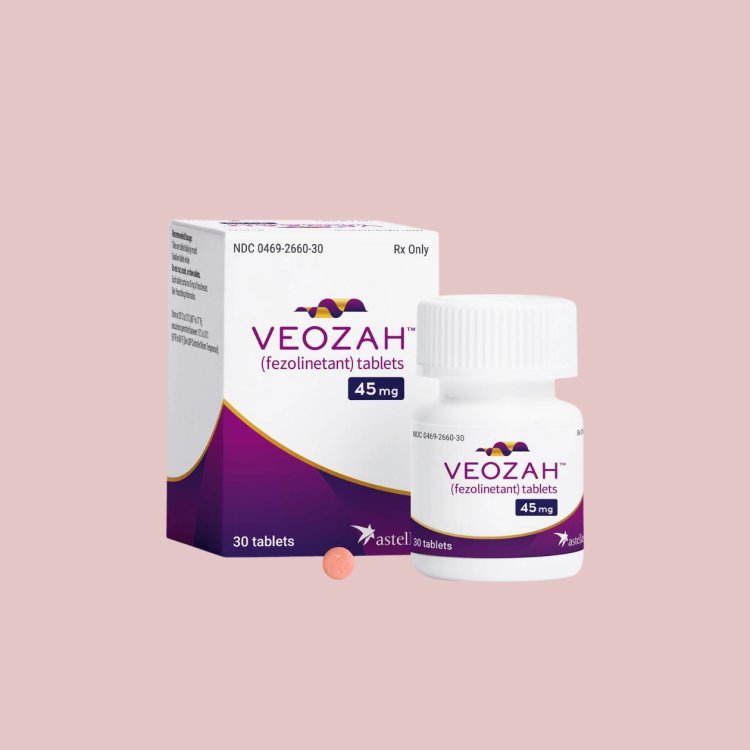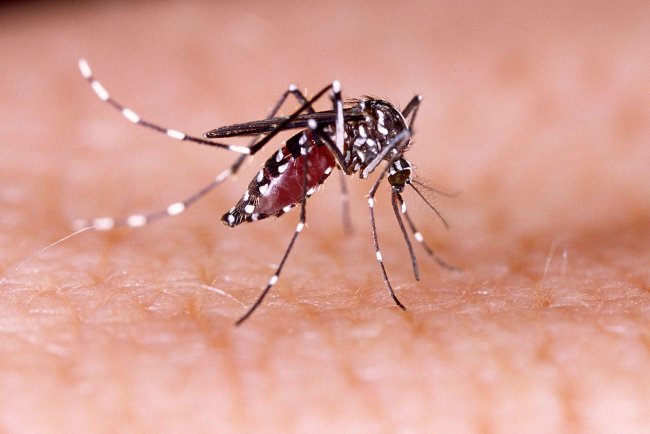Is Veozah for Hot Flashes Just Hype or a Hormone-Free Hope?
A new medication that promises treatment to almost 25% of adults does not come along very often. However, a prescription medication called Veozah (fezolinetant), which treats moderate to severe hot flashes and nocturnal sweats associated with menopause, has made a big splash. Play the Flo Rida theme music, cut to a sweaty woman in an elevator, and then play the slogan, "Fewer hot flashes. More not flashes."

Sounds catchy, doesn't it? But what is truly happening here, outside the brilliant wordplay?
Beyond the fine print and marketing glitz, let us examine Veozah's functions, target audience, and if it is worthwhile to consult your physician about it.
How does Veozah operate and what is it?
Veozah, a nonhormonal drug that targets a brain protein involved in controlling body temperature, received FDA approval in May 2023. Veozah cools the internal thermostat that has gone crazy during menopause by blocking the neurokinin-3 receptor, in contrast to conventional hormone replacement therapy (HRT), which employ estrogen to regulate menopausal symptoms.
This distinction is important. Veozah's hormone-free status could be a game changer for many women who are unable or unable to take hormones because of the hazards (such as blood clots or specific malignancies).
What Is the Advertisement Trying to Say About "Not Flashes" vs. "Hot Flashes"?
One woman melts in an elevator, another wakes up in saturated sheets, and then there are calm scenes of ladies laughing on a dock as the commercial unfolds like a sweaty romantic comedy. The lesson learned? Your life is disrupted by hot flashes. Veozah promises "not flashes," or moments that do not happen.
The commercial swiftly tells us that this treatment is completely hormone-free after dropping the term "vasomotor symptoms," which is the clinical term for hot flashes and night sweats. It is witty, captivating, and obviously targeted to ladies searching for alternatives to the hormone aisle.
But does it work?
Is Veozah a Real System? Let us Discuss Numbers
This is when things become more... complex.
Veozah "has been proved to lower the number and severity of heat flashes day and night," the advertisement claims. It even claims that it might begin to function in as little as a week.
However, if you ignore the fine print, women who took Veozah in clinical trials reported 63% fewer hot flashes after 12 weeks, while those who took a placebo reported 42% fewer. That is a 21% difference, which is not negligible, but it might not be the cool wind one would expect for.
What does that actually mean? SKYLIGHT 1 and SKYLIGHT 2 study participants reported 10–12 heat flashes each day. Veozah caused that number to decrease by roughly 6–7. Even a few fewer sweaty awakenings or public outbursts might be transformative for many women.
In any case, what does "moderate to severe" mean?
According to this research, a mild hot flash was defined as a surge of heat and perspiration that did not interrupt regular activity. Your life was disrupted by a serious one—imagine tearing off layers at work or stopping while driving.
Therefore, when the medication says it targets "moderate to severe" symptoms, we mean the disruptive kind, the ones that interrupt your day without warning and remain too long.
What About Adverse Reactions? What the Ad Does not Focus On To its credit, the advertisement acknowledges that Veozah is not suitable for everyone. Avoid women who have liver disease, serious kidney issues, or are taking certain drugs (particularly CYP1A2 inhibitors).
Then comes the well-known litany of potential negative effects, muffled by cheerful music and stock footage showing women working effortlessly:
Pain in the stomach
Diarrhea
Having trouble falling asleep
Pain in the back
Indeed, both before and throughout treatment, routine liver blood tests are necessary.
While many new drugs follow this procedure, it is important to remember that Veozah is not a one-size-fits-all answer. Like many prescription medications, it has monitoring requirements and the potential to cause discomfort.
The Ad's Strong Points and Weak Points
Veozah's advertisement is excellent. It raises awareness of menopause, a stage of life that millions of women experience but is still little understood and studied. It presents a hormone-free alternative while validating the actual suffering brought on by vasomotor symptoms.
However, the advertisement does not assist women in making an informed choice. The slight variation between Veozah and a placebo cannot be explained by it. Accessibility and cost are not discussed. Furthermore, it does not tell you if your symptoms fit the requirements for use or if your insurance covers it.
In conclusion, is Veozah a worthwhile consideration?
Ask your doctor about Veozah if you have frequent, life-altering hot flashes or night sweats and hormone therapy is not for you or if you have tried it and had bad outcomes.
This is not a panacea. However, it is a new tool in the small menopause toolbox, and even a small improvement can feel like a godsend to some.
Just keep in mind that advertisements for drugs are meant to pique curiosity rather than provide the complete picture. Therefore, take your time, consult your physician, and consider the true benefits and drawbacks before venturing into "not flash" terrain.
What's Your Reaction?




















